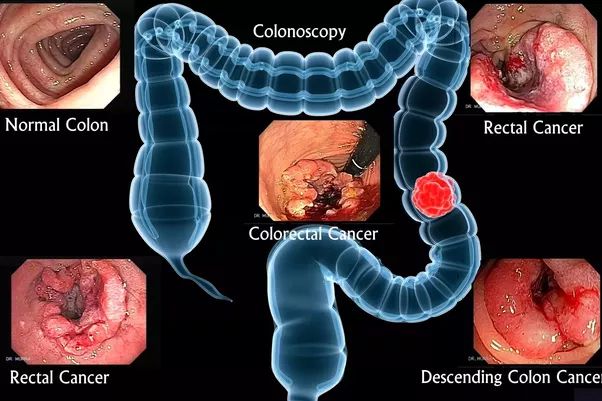Bowel cancer stomach noises
Bowel cancer, also known as colorectal cancer, is a type of cancer that affects the colon or rectum. It is characterized by the uncontrolled growth of abnormal cells in the lining of the large intestine. Stomach noises, which can include rumbling, gurgling, and other sounds originating from the abdominal area, are typically not specific symptoms of bowel cancer. These noises are usually associated with the movement of gas and fluids through the digestive tract.
However, it’s important to note that bowel cancer can cause a range of symptoms and complications, including:
- Changes in bowel habits: Bowel cancer can lead to persistent diarrhea, constipation, or changes in the size and shape of stools. Read about Does Cancer Have A Smell
- Blood in the stool: This can be visible as bright red blood or as dark, tarry stools.
- Abdominal pain and discomfort: Bowel cancer may cause persistent abdominal cramps or pain.
- Unexplained weight loss: A significant and unexplained loss of weight may be a symptom of bowel cancer.
- Fatigue: Ongoing fatigue and weakness can be associated with advanced stages of the disease.
- Anemia: Bowel cancer can lead to anemia due to blood loss.
It’s important to remember that many of these symptoms can be caused by various other, less serious conditions, such as irritable bowel syndrome or hemorrhoids. If you experience persistent or unusual symptoms, especially if you have risk factors for bowel cancer (such as a family history of the disease), it’s crucial to consult a healthcare professional for a proper evaluation and diagnosis. Bowel cancer is highly treatable when detected early, so early diagnosis and intervention are essential for a positive outcome.
Also read the Article: Understanding Buttock Pain Cancer Symptoms
What Is Bowel Cancer?
Bowel cancer is a type of cancer that originates in the cells of the colon or rectum. It can affect both men and women and is more common in individuals over the age of 50. Bowel cancer typically starts as small growths called polyps, which can turn cancerous over time if left untreated. Recognizing the risk factors and early symptoms is crucial for timely intervention.

Stomach Noises: A Cause for Concern?
Everyone experiences stomach noises at some point, usually due to the movement of gas and fluids through the digestive system. However, when these noises become frequent, severe, or are accompanied by other concerning symptoms, it’s essential to consider the possibility of underlying health issues.
Common Symptoms of Bowel Cancer
Bowel cancer may present various symptoms, including:
- Changes in bowel habits (diarrhea or constipation)
- Blood in the stool
- Abdominal pain or discomfort
- Unexplained weight loss
- Fatigue
- Anemia
It’s crucial to consult a healthcare professional if you experience any of these symptoms, especially when they are persistent.
The Connection Between Stomach Noises and Bowel Cancer
Stomach noises alone are not a definitive sign of bowel cancer. However, in some cases, excessive or unusual stomach noises may be a result of an obstruction or blockage in the colon. These blockages can be caused by cancerous growths, leading to changes in bowel habits and discomfort.
Diagnosing Bowel Cancer
The diagnosis of bowel cancer typically involves a combination of procedures, including a physical examination, blood tests, and imaging studies like colonoscopy and CT scans. Early diagnosis is key to effective treatment and a better prognosis.

Stomach Noises: Red Flags
If you notice persistent stomach noises combined with other symptoms like abdominal pain, blood in the stool, or unexplained weight loss, it’s crucial to seek medical attention promptly. These symptoms may indicate an underlying issue in the colon that requires investigation.
Preventing Bowel Cancer
Prevention is always better than cure. To reduce the risk of bowel cancer, individuals can take proactive steps, such as:
- Maintaining a healthy diet rich in fiber
- Regular exercise
- Limiting alcohol consumption
- Avoiding smoking
- Routine screening for early detection
Managing Stomach Noises
Managing stomach noises involves identifying their cause. In most cases, these noises are harmless and can be alleviated by dietary modifications, stress reduction techniques, or over-the-counter remedies. However, if you suspect an underlying issue, consult a healthcare professional.
Treatment Options for Bowel Cancer
The treatment for bowel cancer varies depending on the stage of the disease. It may involve surgery, chemotherapy, radiation therapy, or a combination of these approaches. Timely treatment can significantly improve the chances of a successful outcome.
Coping with a Bowel Cancer Diagnosis
A bowel cancer diagnosis can be overwhelming. It’s essential to seek support from loved ones and healthcare professionals. Many individuals with bowel cancer successfully manage the condition and lead fulfilling lives with proper treatment and support.
The Importance of Early Detection
Early detection of bowel cancer can save lives. Routine screenings, especially for individuals with risk factors, can identify the disease in its early stages when it’s more manageable. Don’t hesitate to discuss screening options with your healthcare provider.
Healthy Lifestyle Choices
Maintaining a healthy lifestyle plays a crucial role in reducing the risk of bowel cancer. Making positive choices in diet, exercise, and avoiding harmful habits can promote overall well-being.

Support and Resources
Living with bowel cancer or caring for someone with the disease can be challenging. Numerous support groups and resources are available to provide information, emotional support, and practical guidance for those affected by bowel cancer.
Conclusion
In conclusion, while stomach noises can be normal, they can also be indicative of underlying health issues, including bowel cancer. If you experience persistent stomach noises along with other concerning symptoms, it’s essential to consult a healthcare professional for evaluation. Early detection and intervention are key to improving outcomes in bowel cancer cases.
Frequently Asked Questions
1. Can stomach noises be a sign of bowel cancer on their own? Stomach noises alone are not a definitive sign of bowel cancer. They are usually considered concerning when accompanied by other symptoms like changes in bowel habits or abdominal pain.
2. What are some risk factors for bowel cancer? Risk factors for bowel cancer include age (especially over 50), family history, a diet low in fiber, smoking, excessive alcohol consumption, and a sedentary lifestyle.
3. How can I reduce my risk of bowel cancer? You can reduce your risk of bowel cancer by maintaining a healthy diet, engaging in regular physical activity, avoiding smoking, limiting alcohol intake, and participating in routine screenings.
4. What is the prognosis for bowel cancer when detected early? When detected early, bowel cancer is highly treatable, and the prognosis is generally better. Early intervention can significantly improve the chances of a successful outcome.
5. Where can I find support and resources for bowel cancer patients and their families? Various support groups and resources are available, including healthcare providers, cancer organizations, and online communities, to provide information and emotional support for those affected by bowel cancer.








